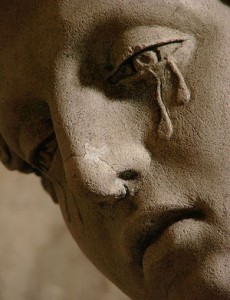Isaiah 48:17-18, This is what the Lord says— your Redeemer, the Holy One of Israel: “I am the Lord your God, who teaches you what is best for you, who directs you in the way you should go. If only you had paid attention to my commands, your peace would have been like a river, your well-being like the waves of the sea.”
This passage, and scores akin to it, affirm (at least) these two great ideas: peace is heaven’s preference, and righteousness is heaven’s prescription.
First, note that The Lord claims that He is the One who teaches us what is best for us (best for us, best for us – as in “this is the most preferred state for us, the ideal). If “we” (they, in the text – but “we” as the reader) would pay attention to His commands (listen, honor, put into practice what He teaches) then we would have peace like a river and well-being like waves of the sea. Let’s not overlook the significance of peace and well-being. These words likely carried the ideas of “peace and prosperity” in their lives and “deliverance and safety” from their enemies. There’s no way not to see this as “best,” as “preferred” – highly coveted even. And the good news is that it is God’s idea. It comes from His heart and mind. Peace and righteousness are His design and desire for you. This is His preference.
Therefore, (among many other considerations) it would be illogical to embrace the idea that, for our own formation and edification, God will send trauma or pain or suffering into our lives. This is not to say that these things don’t come into our lives. Neither do we agree that if something is going wrong, the causal link is direct disobedience and God is punishing you. Rather, it is knowing what is heaven’s preferred state for us that gives us hope in hard times, confidence in adversity, and resolve to overcome trial and hardship. We need not ever resign ourselves to accept as “the new normal” what is less than that which God has prepared for those who love Him. Your heart doesn’t have to remain broken. Your soul doesn’t have to stay in turmoil. Grief and anxiety don’t have to be your roommates. Hope should be your companion, and joy your strength. Heaven has not assigned you to a desert of malaise; it has prepared for you a river of peace.
The OT never, not ever, presents the narrative from heaven as “when you’re obeying and walking in relationship with Me, from time to time I’ll surprise you with catastrophe and disaster just to keep you on your feet.” No. His preferred state is blessing; peace and righteousness are His plan. Think of it, when God dreams about you, He dreams (envisions, desires, designs) your best, your peace, your righteousness. He wants what is best for us.
Secondly, (again, among other significant truths) this passage affirms that the commands of God are the best prescription for relief from pain and suffering, and the best means to prevent those things in our lives. This is not a recruitment for more of Job’s counselors. But it makes no sense to grieve and mourn and be vexed over the pain and discord and LACK of peace and righteousness around us – and then wonder what (if anything) can really be done about it. The preaching and practice of truth are not just words and wasted breath. They are the only real hope of healing, change, and restoration. Think of it: what good is it if we treat the symptoms of decay (hunger, crime, violence, sickness, divorce, abuse, sexually transmitted disease, “unwanted” pregnancy, etc. – and make no mistake we can, should, must do our best and most to alleviate suffering in any form) but do not prescribe the path to peace? I am saying that the preaching, teaching, practice and priority of sound doctrine, ethics, and obedience are the only real, lasting hope for our society – no less so than it was for Isaiah’s audience.
Our redeemer STILL knows and desires what is best for us. He is still teaching us the way we should go. More than ever, I am resolved to “study, practice, and teach” (Ezra 7:10) His ways. I want what He wants – what is best.

